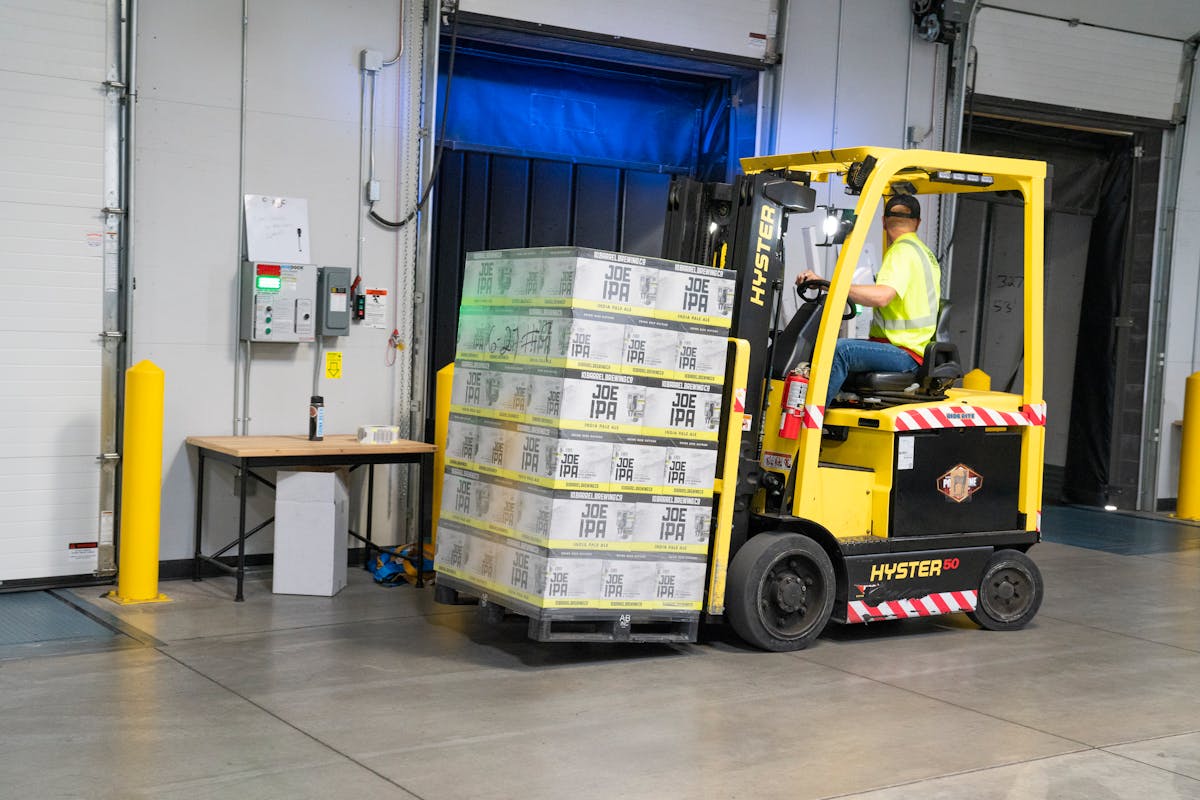- Organize warehouse layout with clearly labeled storage areas to streamline loading and retrieval processes.
- Invest in quality equipment and maintenance to speed up handling while improving safety and reducing costs.
- Train staff on safety protocols and equipment use to enhance efficiency and minimize workplace accidents.
- Utilize technology, including automated inventory systems and RFID tracking, to improve supply chain transparency and efficiency.
Efficient cargo handling is crucial for any business that deals with shipments and logistics. Whether you are a small business owner or a seasoned manager, mastering the art of loading and unloading can save you time, money, and resources. This blog will discuss tips to help you improve your cargo handling processes and make your operations more efficient.
Organize Your Warehouse Layout
The first step to efficient loading and unloading is to have a well-organized warehouse layout. Make sure that your storage areas are clearly labeled, with designated spaces for incoming and outgoing shipments. Implementing a systematic approach to storing goods will help streamline the loading process and reduce the time it takes to find and retrieve items.
Invest in Quality Equipment

Having the right tools and equipment can make a world of difference when it comes to cargo handling. Investing in high-quality pallet jacks, forklifts, conveyor belts, and other machinery will not only speed up the loading and unloading process but also improve safety standards in your warehouse.
Make sure that your equipment is well-maintained and regularly inspected to prevent breakdowns or accidents. However, it’s worth noting that purchasing quality equipment upfront can be expensive, especially for smaller businesses. Fortunately, there are options for renting equipment if purchasing is not feasible at the moment.
Just make sure you partner with a reliable equipment rental company near or in your area of operations. For example, if your business is based in Singapore, you need to choose a company that can provide forklift rental in Singapore. This ensures that you have quick access to equipment when needed without having to deal with significant transportation costs. This will also save you from the hassle of maintaining and storing equipment when not in use.
Train Your Staff
Proper training is essential for efficient cargo handling. Make sure that all employees involved in the loading and unloading process are well-trained in safety protocols, equipment operation, and best practices for handling different types of cargo. Regular training sessions can help improve efficiency, reduce errors, and minimize the risk of accidents in the workplace.
Implement Strict Quality Control Measures
To ensure that your cargo is handled efficiently, it is essential to implement strict quality control measures throughout the loading and unloading process. Conduct regular inspections of incoming shipments to check for damages or discrepancies, label goods accurately to avoid mix-ups, and enforce safety protocols to prevent accidents during handling. By maintaining high standards for quality control, you can minimize errors, reduce delays, and build trust with customers.
Use Technology to Your Advantage

In today’s digital age, there are countless tools and technologies available to help streamline cargo handling processes. Here are four ways technology can benefit your business:
Automated Inventory Management
Keep track of inventory levels, receive alerts for low stock, and monitor shipments in real-time with automated inventory management systems. This can help you avoid stock shortages, reduce storage costs, and ensure timely delivery of goods.
RFID Tracking
Radio Frequency Identification (RFID) technology allows for efficient tracking of cargo throughout the supply chain. RFID tags attached to shipments can be scanned at various points along the journey, providing real-time updates on location and status. This helps improve transparency, reduces errors in manual tracking, and enables quicker resolution of any issues that may arise.
Electronic Data Interchange (EDI)
EDI allows for the electronic exchange of documents between different parties in the supply chain. This eliminates the need for paper-based processes, reduces administrative tasks, and speeds up communication and processing times. EDI can also help improve accuracy by minimizing human error.
Cloud-Based Systems
Cloud-based systems offer a secure and accessible way to store and manage data related to cargo handling. This can include information such as inventory levels, shipment details, and customer orders. Cloud-based systems allow for real-time collaboration between teams, even if they are located in different parts of the world. This helps improve efficiency, reduce delays, and ensure smooth communication throughout the supply chain.
By investing in the right tech solutions, companies can streamline their inventory management processes and improve overall efficiency in the supply chain.
Enhancing cargo handling efficiency is pivotal for businesses involved in shipments and logistics. This blog has outlined key strategies for achieving this goal, including organizing your warehouse layout, investing in quality equipment, training staff effectively, implementing strict quality control measures, and leveraging technology to streamline operations. By adopting these practices, businesses can save time, reduce costs, and enhance safety, ultimately improving operational efficiency and customer satisfaction.

